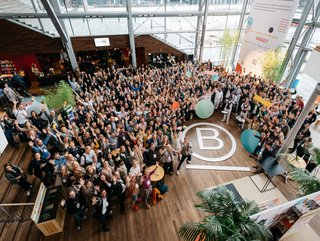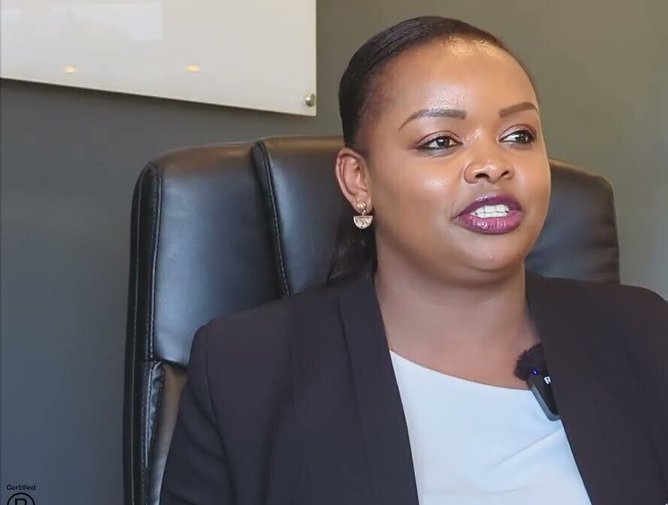B Corps Bring Purpose and Profit for Sustainable Business

We have unsettling news. Having been led to believe that financial success and doing good were mutually exclusive, it seems Certified B Corporations (or B Corps) are turning that established perception on its head.
Now, you can have it all, with B Corps outperforming other businesses when it comes to revenue, growth, stability, resilience, and (importantly) doing good at the same time when it comes to sustainability.
B Corps have always put purpose before profit, and that makes them attractive to their customers, local communities, and suppliers – not to mention their workers and potential investors.
But now, it seems being B Corp is also good for the bottom line.
B Lab is the nonprofit network that powers the B Corp movement, and while these findings have come from B Lab’s own white paper entitled Financial Performance and Resilience of B Corps, data was sourced from hundreds of thousands of businesses around the world who have taken the B Impact Assessment – a digital tool that can help measure, manage, and improve positive impact performance.
As such, the data is compelling, especially during times of economic disruption, such as the coronavirus pandemic.
From 2019 to 2021, B Corps were more likely to grow their revenue and their headcounts, and they were more resilient – with 95% remaining in business in 2023 compared to 88% of non B Corp businesses. And while it takes considerable time and effort to achieve B Corp status, it tends to have a neutral or even positive financial impact.
“There's a financial health and resilience associated with being B Corp Certified,” Joachim Krapels, B Lab Global's Director of Insights, and Coordinator Strategy & B Corp Movement Department, tells Sustainability magazine.
“When you care about the products and services you deliver, that’s how to create impact.”

Can Financial Health and Social Impact Co-exist?
B Corps are not profit-first companies, but it is important to remember that they are for-profit. B Corps do not chase huge profits at any cost, rather they strive for financial health, building resilience and nurturing sustainability.
“B Corps are different. We've been on a mission since 2006 to introduce a new way of thinking about business and moving away from a traditional shareholder capitalism model to one of stakeholder governance,” explains Krapels.
“Stakeholder governance is the idea that a company takes all of its stakeholders – that's people, planet, community – into consideration when making business decisions, thinking about strategy, but also thinking about profit and purpose.”
Because B Corps tend to have a clear, impact-oriented mission, that mission comes first. They are all still for-profit companies, so need a certain level of financial health and financial sustainability to keep fueling that mission.
The white paper set out to investigate if those two seemingly opposite factors can thrive in a B Corp.
Krapels says the question for B Corps is when you focus on impact, can you do so while staying financially healthy? It’s a fine balancing act between profit and purpose.
“Different B Corps will have different ideas of what that growth trajectory will look like, but what should connect us all is that shared idea that there is a role here for business to play as a force for good,” says Krapels.

B Corps Have a Powerful Pull to Attract and Retain Talent
To provide an independent overview, the latest white paper examines the results taken from nine different papers that show B Corps are performing as well, or better, in 16 out of 18 outcomes.
One of those companies is KMD Brands – a publicly traded outdoor, lifestyle and sports company that switched to B Corp Certification for all of its brands (including Rip Curl) in early 2023. Since then, the company’s sales have hit NZ$1bn (US$620m) for the first time, despite a challenging economic climate.
“KMD Brands is proud to be a business that balances profits with purpose,” says Frances Blundell, Chief Legal and ESG Officer, KMD Brands.
“We hope that through our certification, other similarly complex businesses will see that it’s possible that they do the same.”
One of the biggest challenges that organisations have faced post-pandemic is talent.
A number of factors have been at play, including the so-called Great Resignation, an ageing workforce, the need for upskilling, and the fact that Gen Z (for one) do not envisage a 30-year career at the same company.
B Corps face those same issues, but they also have a powerful pull to both attract and retain that talent.
“We're seeing that a lot of people are looking for meaningful jobs – not just Millennials and Gen Z,” says Krapels.
“The fact is, a lot of us care about the world, where it's going, and want to make a contribution, and you can no longer see your job separate from that. You want to know that this place where you spend so much of your time and give so much energy is a meaningful way for you to utilise your talents.
“Being B Corps is sending a credible signal that this is a company that is trying to really do better, that has a mission, that is caring about its people, its workers, its community, the environment that it's in. It’s a way to stand out in the market.”
Another case study covered in the B Corp white paper features 4G Capital – a lending company that helps small businesses in Kenya and Uganda grow by providing working capital loans, access to training, and frictionless mobile tools for managing money.
“B Corp certification has allowed us to showcase our commitment to the regenerative economy where we place client success at the forefront of all we do,” says Roseanne Masila, Chief Operations Officer, 4G Capital.
“We have been able to attract and retain mission aligned staff who are committed to helping unlock human potential in Africa for good.”
Krapels also mentions a new study from Brazil that suggests potential candidates were willing to trade off around 10% of salary to work for a B Corp. He says there is a growing body of evidence that shows tangible trade-offs people are willing to make for a mission-driven B Corp.
He says it is one thing to do things differently by design, but another to act differently.
One key example is how a B Corp treats its workers as key stakeholders, creating an environment where they are committed to the mission. Because you are mission driven, you are also invested in your own sustainability as a company. That may seem obvious, but it’s a B Corp superpower.

Any CEO reading this may be thinking that while good intentions and seeing your company as part of the solution to some of the world’s problems sounds attractive, it’s hard to justify from a business perspective. The B Corp route is not for everyone, but Krapels believes this white paper may shed light on if it is right for your business.
“I think our white paper can help because becoming an impact oriented company can help your company stay healthy over the longer term,” he says. “From caring about your people and thinking about your long-term mission and sustainability, to how you're engaging with your community or customers or suppliers – these are all things that can help you be ready for the future.”
Maybe that future includes becoming a B Corp.
How to become B Corp
According to Krapels, you definitely do not have to be ‘born’ B Corp.
"We are strong believers in improvement journeys and that whatever your starting point is, anybody can do it,” says Krapels.
“You can also take the impact assessment because it's a free tool even if your immediate aim is not certification. The aim is that we get companies to go on improvement journeys.
“Some are born B Corp companies that were created with this aim, whereas others could have been companies that have been in existence for a while, have operated like a ‘normal’ business for a long time, but are now thinking that maybe they have a contribution to make.
“Maybe they go on an ESG measurement journey and then start thinking more about impact. It's not just about managing the risks, it's also about making a positive contribution. Then they may find their way to becoming B Corp Certified as a way of reaffirming this new direction.”
******
Make sure you check out the latest edition of Sustainability Magazine and also sign up to our global conference series - Sustainability LIVE 2024
******
Sustainability Magazine is a BizClik brand
- ‘Client Zero’ IBM’s Guide to Using AI for SustainabilitySustainability
- Is Unilever’s ESG Rethink Good Business or Green Betrayal?Sustainability
- Could AI and Data Help Nestlé Make Coffee Climate Resilient?Sustainability
- Sustainability LIVE Dubai: Meet Our Speaker Line-up for 2024Sustainability







